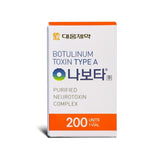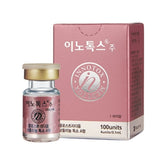Tips for Choosing the Right Cosmetics for Your Skin Type

Tips for Choosing the Right Cosmetics for Your Skin Type. When it comes to cosmetics, there is no one-size-fits-all solution. The quest for the perfect makeup that complements your skin's unique characteristics can be daunting. Understanding your skin type is crucial in selecting the right cosmetics that not only enhance your natural beauty but also maintain skin health. This comprehensive guide will provide you with professional tips for choosing the right cosmetics for your skin type, ensuring that your beauty routine supports your skin's well-being.
Tips for Choosing the Right Cosmetics for Your Skin Type: Know Your Skin Type
Before diving into the sea of cosmetic options, it’s essential to understand your skin type. Whether it's dry, oily, combination, sensitive, or normal, each has its specific needs and challenges.
Dry Skin:
Dry skin can feel tight and may have flaky areas. It requires cosmetics that offer hydration and a creamy, rich texture to help retain moisture and create a dewy finish.
Oily Skin:
Oily skin is characterized by excess sebum and tends to have a shiny appearance. Look for oil-free and non-comedogenic cosmetics that provide a matte finish and help control shine throughout the day.
Combination Skin:
Combination skin features both oily and dry areas, usually an oily T-zone (forehead, nose, and chin) and drier cheeks. Products that are balancing and adaptable to different areas are key.
Sensitive Skin:
Sensitive skin may react to certain ingredients, resulting in redness, itching, or breakouts. It's imperative to choose hypoallergenic and fragrance-free cosmetics to minimize irritation.
Normal Skin:
Normal skin has a balanced sebum production and minimal issues. You can use a wide range of cosmetics but always consider the overall health and protection of your skin.
Tips for Choosing the Right Cosmetics for Your Skin Type: Foundation Matching
For Dry Skin:
Opt for a hydrating, luminous foundation that provides moisture and reflects light to enliven the skin. Avoid powder foundations that can accentuate dry patches.
For Oily Skin:
Matte-finish foundations or those formulated with absorbents can help manage shine. Mineral foundations can also be a good choice as they often have oil-absorbing properties.
For Combination Skin:
You may benefit from using different foundations on different areas of the face or a medium-coverage, buildable foundation that can adapt to varying levels of oiliness.
For Sensitive Skin:
Seek out foundations with minimal and non-irritating ingredients. Mineral-based foundations can be a good fit as they are often free from potential irritants.
For Normal Skin:
You have the liberty to experiment, but always consider a foundation with SPF to protect against sun damage.
Tips for Choosing the Right Cosmetics for Your Skin Type: Blushes and Powders
For Dry Skin:
Cream blushes that can blend into the skin without highlighting dry areas are ideal. Translucent powders or hydrating setting sprays can set makeup without adding dryness.
For Oily Skin:
Powder blushes and oil-absorbing setting powders help to maintain a matte finish and keep makeup in place.
For Combination Skin:
A balance of both cream and powder products can be used strategically on different areas of the face.
For Sensitive Skin:
Blushes and powders free of synthetic dyes and fragrances are less likely to cause a reaction.
For Normal Skin:
Experiment with textures and finishes to find your preferred look, but consider the longevity and ingredients of the product.
Eye Makeup
For Dry Skin:
Cream eyeshadows can add hydration and prevent the eyelids from looking crepey. Avoid powders that can settle into fine lines.
For Oily Skin:
Eye primers and matte eyeshadows can help to prevent creasing. Waterproof mascaras and eyeliners can also combat smudging caused by excess oil.
For Combination Skin:
You may need a primer to balance the eyelids' texture and help makeup stay put.
For Sensitive Skin:
Opt for ophthalmologist-tested eye makeup to avoid irritation, especially if you wear contact lenses.
For Normal Skin:
Feel free to explore different eyeshadow formulas and finishes, but always remove eye makeup gently to maintain the delicate skin's health around the eyes.
Lip Products
For Dry Skin:
Hydrating lipsticks and glosses with moisturizing ingredients like hyaluronic acid or natural oils can keep lips from drying out.
For Oily Skin:
Long-lasting matte lipsticks can provide color without adding shine or slip.
For Combination Skin:
Balanced formulas that provide hydration with a hint of shine or a soft matte finish work well.
For Sensitive Skin:
Lip products with minimal additives and allergens will reduce the risk of irritation.
For Normal Skin:
You can play with textures and colors to your heart’s content, but don't forget to use a lip balm with SPF during the day.
Tips for Choosing the Right Cosmetics for Your Skin Type: The Importance of Ingredients
Regardless of your skin type, pay close attention to the ingredients in your cosmetics. Look for beneficial additives like antioxidants, vitamins, and peptides that can contribute to skin health. Be wary of ingredients that can cause harm or irritation, such as certain alcohols, fragrances, and preservatives.
Choosing the right cosmetics for your skin type is an art form that requires understanding, patience, and a bit of experimentation. By following these tips, you can select products that will not only make you look your best but also support the long-term health and radiance of your skin. Remember, the right cosmetics for your skin type are those that feel comfortable, look natural, and bring joy to your daily routine. In the world of beauty, personalization is the key to success.





